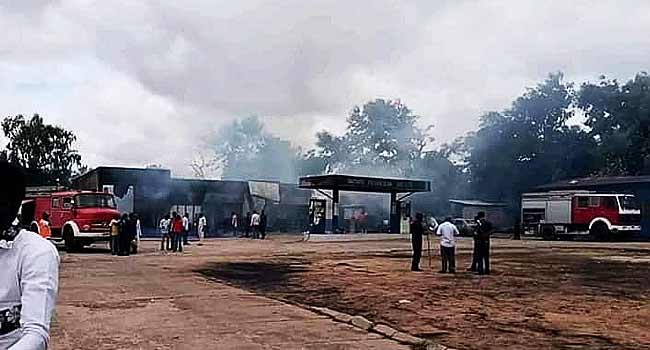Is an enthusiastic and open minded writer. She believes in…
Unpredictable weather patterns and the spread of crop-destroying fall armyworm caterpillars could lead to “no food at all” for communities across Africa, experts have warned.
The caterpillars, which were discovered in Africa in 2016 and are believed to have come from South America, have now been identified in 44 countries, up from 28 last year.
The director-general of development at Centre for Agriculture and Biosciences International (CABI), Dennis Rangi, blamed globalisation for the spread of the pest.
But it could have a potentially devastating effect combined with unpredictable weather patterns, he said on the sidelines of an agricultural conference in Kigali.
“Rainfall is not very reliable anymore so when you get a combination of a little drought and the fall armyworm you are going to be talking about no food at all,” he told AFP on Wednesday.
“The fall armyworm does not feed on maize alone. It will be able to jump to other crops, which means it will devour any other green thing that is out in the field.”
Some 300 million people across Africa could be at risk from the effects, he estimated.
CABI was researching the extent of the damage done so far but Rangi said more needed to be done as some farmers turned to makeshift remedies such as soap and detergents.
“We are beginning to see that desperation. We really need to move even faster. It’s pretty scary,” he added.
Rangi earlier told delegates at the Africa Green Revolution Forum that the continent’s success in agriculture hinged to a large extent on how it dealt with the pest.
“Forcefully removing this invasive species cannot be overlooked if we desire this agricultural transformation we are talking about,” he said.
Big challenge
CABI research from 2017 found the caterpillar could cut yields by up to 60%, costing 10 of Africa’s major maize-producing economies $2.2bn to $5.5bn a year in lost harvests.
But Rangi said that was likely to be a conservative estimate.
Fall armyworm, which was first spotted in Nigeria and Togo and damaged crops from South Africa to Ghana, eat staple crops such as maize, wheat, millet and rice.
They also attack cotton, soybean, potato and tobacco fields.
The Food and Agricultural Organization (FAO) has previously warned that the innocuous-looking but hugely destructive caterpillars pose “a huge threat to food security”.
The FAO’s representative to the African Union, Chimimba David Phiri, said it was too late to get rid of the pest, as it had developed some resistance to pesticides.
Instead, African countries needed to learn to live with it.
Applying pesticides would not work, he said, suggesting farmers should scan their crops and crush eggs.
“We can manage it but we can’t get rid of it. Governments and communities need to understand that,” he said.
May-Guri Saethre, from the Nigeria-based International Institute of Tropical Agriculture (IITA), said experts did not yet know how fall armyworm affected countries across Africa.
“All these things we haven’t really sorted out yet, its because it’s so new,” said Saethre, deputy head of research for development at the IITA.
“We know how it behaves in Latin America but we don’t know how it is behaving in Africa. That is a big challenge,” she added.
Fall armyworm is believed to have been brought to Africa on commercial flights from South America or in plants imported from the region.
Saethre said it could have been prevented by proper customs and border control checks.
ALSO READ: Africa Awards 2017 Africa Food Prize at the African Green Revolution Forum
Is an enthusiastic and open minded writer. She believes in excellence and is always willing to lend her voice to necessary courses that are dear to her heart. Jewel is also a content developer and an upcoming media strategist.







